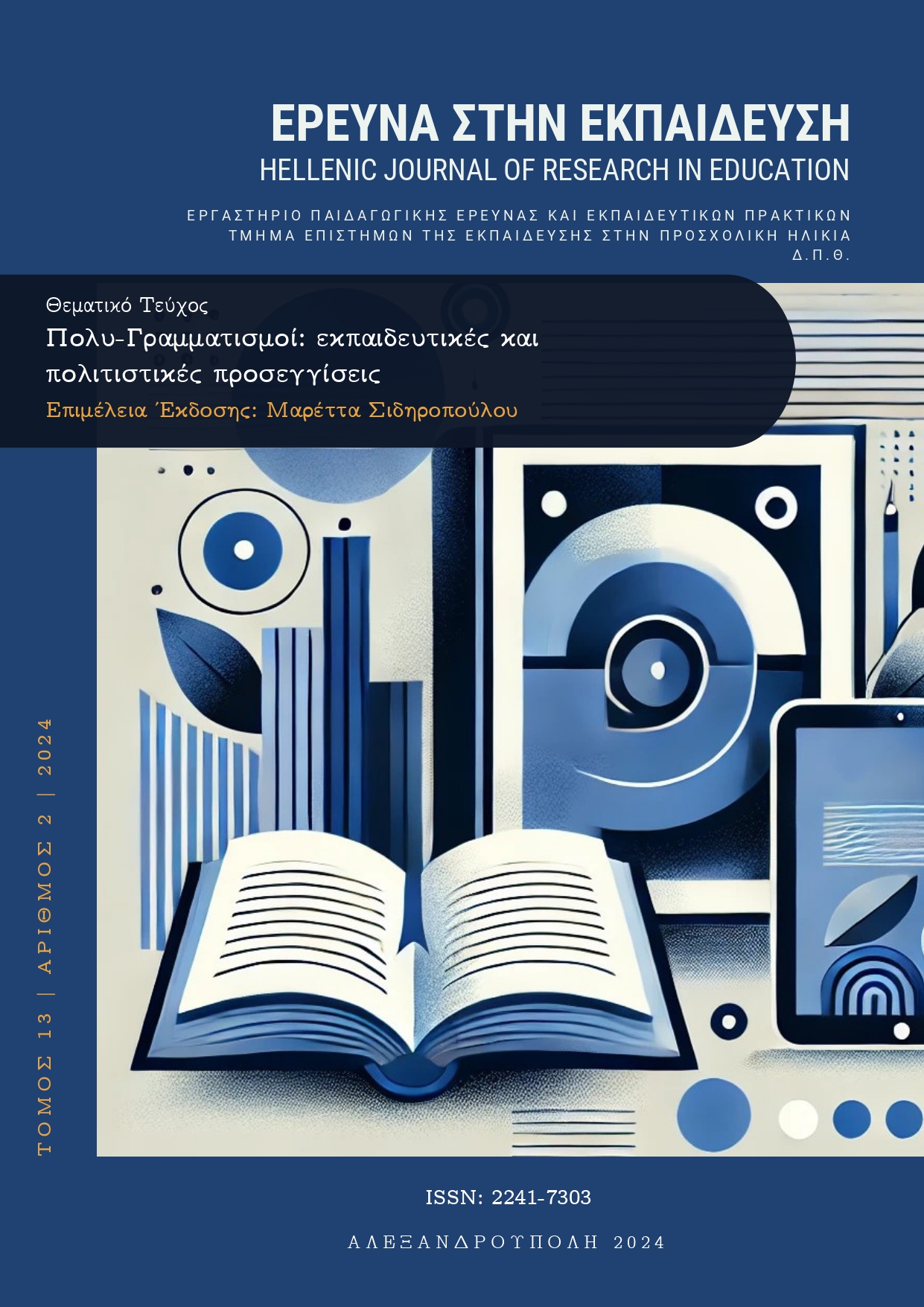Early Childhood Educators' Views on Cultural Literacy and Pedagogical Practices

Abstract
Currently, cultural literacy, defined as the ability to understand and appreciate the complexity of different cultures, is an essential aspect of the wellbeing in modern societies. Its significance is increasingly acknowledged as a crucial component of young children's education, contributing to the development of behavioral and empathetic values and attitudes. For this reason, educators in early childhood education and care settings are tasked not only with imparting knowledge about diverse cultures to children but also with shaping their overall worldview. This is especially important as children are in a critical developmental stage where fundamental values and attitudes are being formed. Considering this, the paper aims to explore how educators perceive cultural literacy and integrate it into their pedagogical practices. To achieve this purpose, a questionnaire was constructed that targeted early childhood educators and combined quantitative (closed-ended questions) and qualitative analysis (open-ended questions). The collected data were analyzed using SPSS for the quantitative component and thematic analysis for the qualitative responses. The findings of the study provide valuable insights for policy makers and educators, emphasizing the importance of cultural literacy in developing a more inclusive and culturally sensitive generation of children, while also highlighting the pedagogical practices applied in educational and care settings to cultivate it.
Article Details
- How to Cite
-
Sotiropoulou, E. (2024). Early Childhood Educators’ Views on Cultural Literacy and Pedagogical Practices. Hellenic Journal of Research in Education, 13(2), 50–72. https://doi.org/10.12681/hjre.37361
- Section
- Articles

This work is licensed under a Creative Commons Attribution-NonCommercial-ShareAlike 4.0 International License.
Authors who publish with this journal agree to the following terms:
- Authors retain copyright and grant the journal right of first publication with the work simultaneously licensed under a CC-BY-NC-SA that allows others to share the work with an acknowledgement of the work's authorship and initial publication in this journal.
- Authors are able to enter into separate, additional contractual arrangements for the non-exclusive distribution of the journal's published version of the work (e.g. post it to an institutional repository or publish it in a book), with an acknowledgement of its initial publication in this journal.
- Authors are permitted and encouraged to post their work online (preferably in institutional repositories or on their website) prior to and during the submission process, as it can lead to productive exchanges, as well as earlier and greater citation of published work (See The Effect of Open Access).


